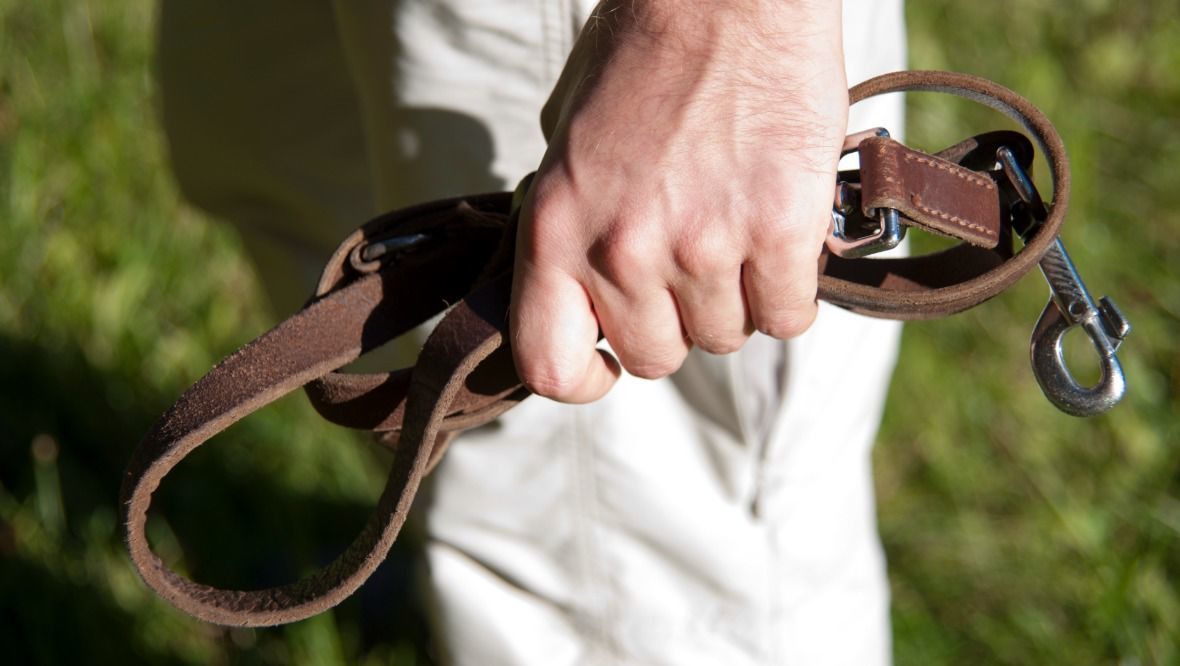A push by the Scottish Greens to ban shock collars for dogs has failed, with the Scottish Government refusing to commit to prohibition.
Green MSP Ross Greer pushed for the move in an amendment to the Welfare of Dogs (Scotland) Bill being put to a final vote on Thursday, which was defeated by 28 votes to 84.
Christine Grahame, the SNP MSP proposing the Bill, was among those not to support the amendments, while she was steadfast in her support for an outright ban.
The Bill will create a voluntary code of conduct governing how dogs change hands in a bid to tackle puppy farming and was passed unanimously, being backed by 114 MSPs.
The amendment sparked a tense debate in the chamber, but rural affairs minister Jim Fairlie refused to commit to bringing forward regulations to ban shock collars despite being urged to do so multiple times.
Greer said dogs can experience “significant physical pain” as a result of the collars – which have already been banned in Wales.
“At the very least, they mean to cause fear and distress, that is the whole point of a shock collar,” he said.
“These devices are, in short, cruel.”
The Scottish Government’s Animal Welfare Commission concluded in 2023 that the use of shock collars should be banned, saying: “Whatever the skill of the user, e-collars have the potential to cause harm and that that risk is disproportionate to the perceived training benefit.”
Guidance issued by the Government recommended against their use.
“The Scottish Government doesn’t support their use, they just haven’t banned them yet,” Greer added, saying that he would not press his amendments to the Bill if he could get an assurance from the Government they would seek to ban shock collars.
Later in the debate, when given the opportunity to intervene during remarks from Greer – and pressed by Grahame to table draft regulations on the matter, Fairlie said: “I will not commit to anything at this stage, until we have gone through the full process.”
Responding to Fairlie, the Green MSP said: “This is why my frustration, I absolutely did not want this debate to take the tone it is now taking.
“The minister asked us to follow the process, how many years and decades do members need to keep following the process?”
Greer described the minister’s failure to commit to the ban as “a significant departure” from the Government’s position, while Grahame urged the minister to table draft regulations with the Rural Affairs and Islands Committee.
Fairlie agreed to go to the committee to have a “full and proper debate around whether or not shock collars should be banned” and assured MSPs he would not kick the issue “into the long grass”.
But despite her support for the purpose of the amendments, Grahame – who has already announced she will stand down at the election next year – appeared irked by Greer’s attempts at a full ban.
“I take no lessons from any one person in here about my commitment to the ban on shock collars,” she said.
“But as a legislator, I have to ask this – is this how to bring in a ban with a robust, enforceable legal framework?”
She added: “Process is essential to robust legislation to deliver what you want in practicalities.”
Grahame said she was “getting slightly agitated” by the amendments, which she suggested may not have been within the purpose of the Bill, as well as questioning the timing of the amendments.
Follow STV News on WhatsApp
Scan the QR code on your mobile device for all the latest news from around the country


 iStock
iStock


























